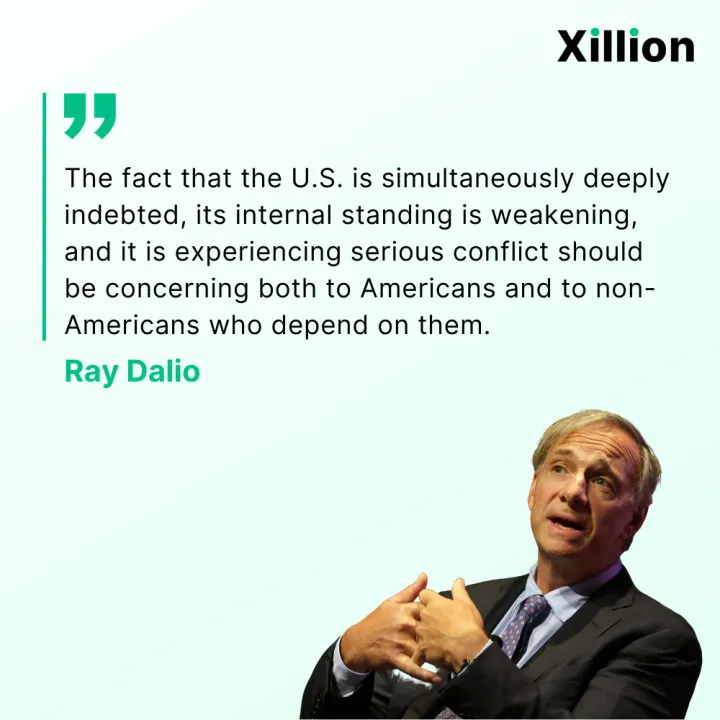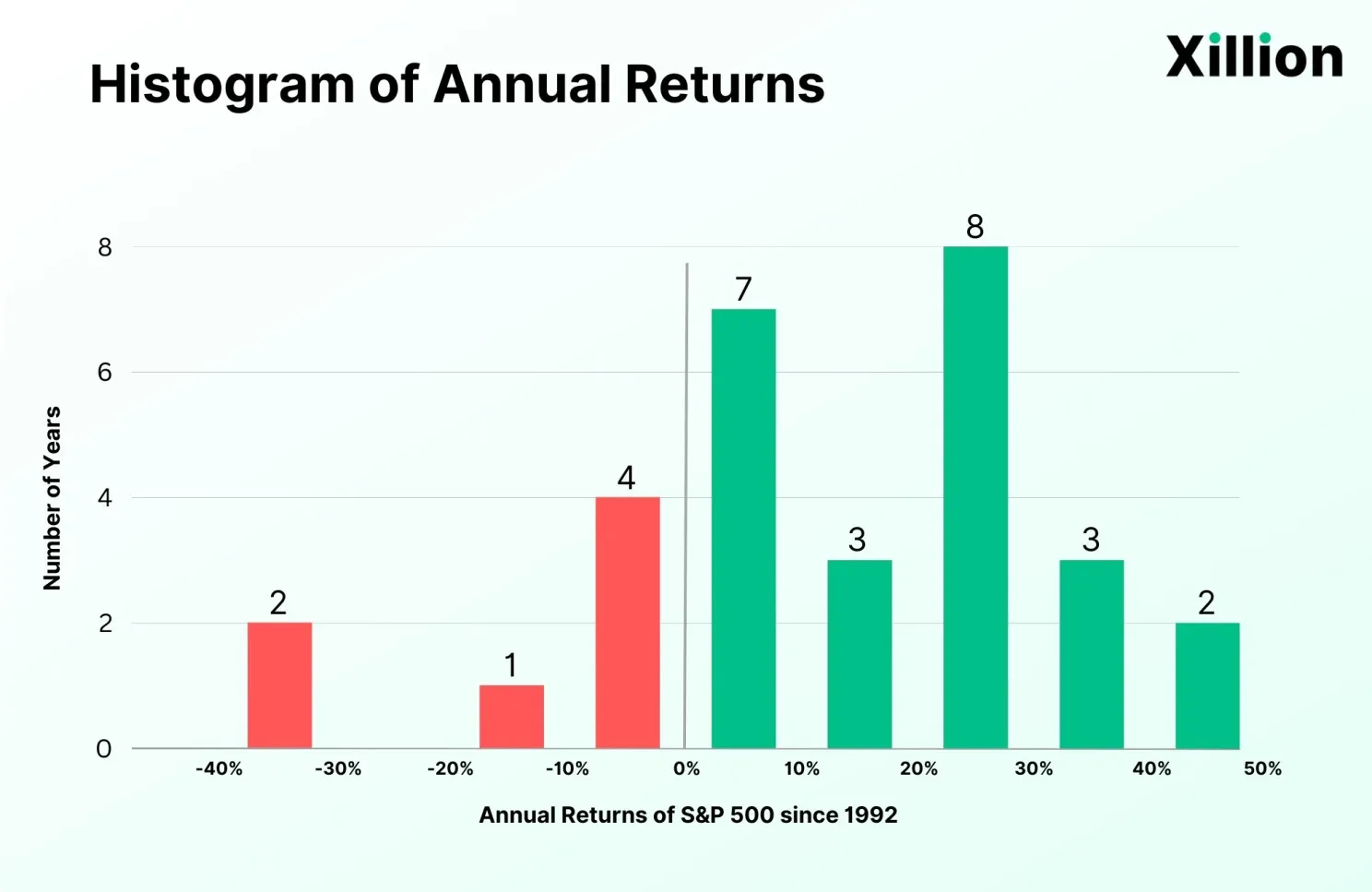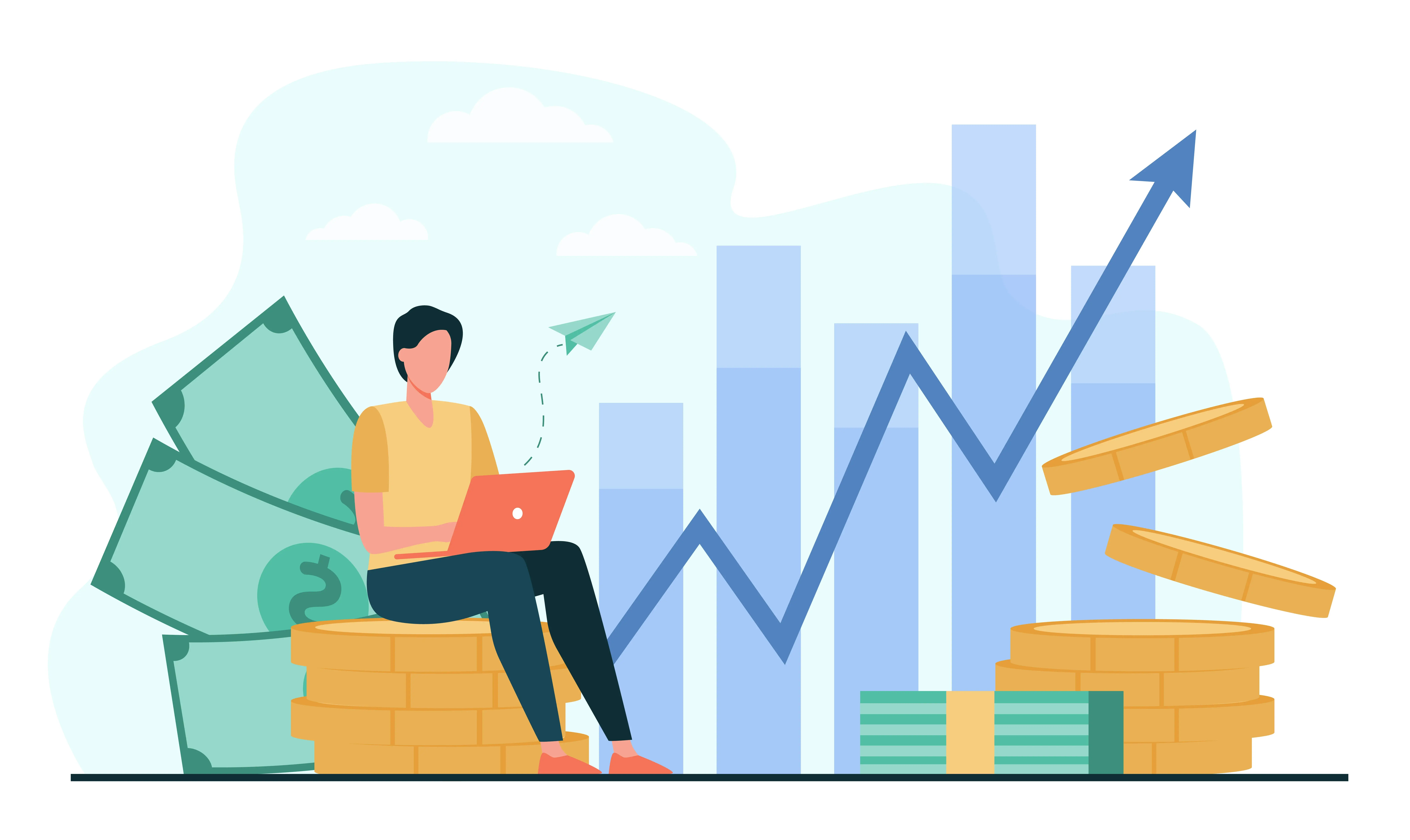Is it time to invest in China instead of the U.S.?
Co-Authored and Reviewed by Gagan Sandhu, MBA - The University of Chicago Booth School of Business, CEO of Xillion
Posted on . 6 min read

Every great civilization in human history has gone through a cycle that includes a rise to power, a period of stability, and a period of decline. Eventually, the decline becomes so tumultuous that the empire itself collapses.
Here we can see a graph from Ray Dalio’s recent book, “Principles for Dealing with the Changing World Order: Why Nations Succeed and Fail,” that illustrates this cycle of civilizations:

Dalio, the billionaire founder of the hedge fund Bridgewater, explains: “From examining all these cases across empires and across time, I saw that the great empires typically lasted roughly 250 years, give or take 150 years, with big economic, debt, and political cycles within them lasting about 50 to 100 years.”
Dalio also talks about why we tend not to think in terms of grand historical cycles, even though we may accept these cycles exist. He believes this happens because “we are like ants preoccupied with our jobs of carrying crumbs in our very brief lifetimes instead of having a broader perspective of the big-picture patterns and cycles, the important interrelated things driving them, where we are within the cycles, and what’s likely to transpire.”
From all of this, Dalio basically concludes that the U.S. empire is on the decline (about 70% through its big cycle), while China is next in line to take its place as the next great civilization. He tells the reader that “whoever wins the technology war usually wins the economic and military wars.” Perhaps of the greatest concern, Dalio puts the odds of the U.S. devolving into a civil war at “only around 30%,” which he concedes is “a dangerously high risk that must be protected against and watched closely.” To Dalio, polarization is one of the biggest internal issues facing the United States.
In conclusion, Dalio writes:
“While we can’t know for certain whether the splits and conflicts in the U.S. will increase or reverse, we do know that the long-term momentum is toward increasing division and this is a serious risk. The fact that the U.S. is simultaneously deeply indebted, its international standing is weakening, and it is experiencing serious conflict should be concerning both to Americans and to non-Americans who depend on them. At the same time, in its 245-year history, the U.S. has shown a great capacity to bend without breaking.”
An investor reading this book would likely conclude that it’s time to sell all U.S. equities and buy a Chinese stock market index. However, it’s worth considering opposing opinions. In his annual letter to shareholders in 2021, Warren Buffet reaffirmed his belief in the United States. The Oracle of Omaha wrote:
“Today, many people forge similar miracles throughout the world, creating a spread of prosperity that benefits all of humanity. In its brief 232 years of existence, however, there has been no incubator for unleashing human potential like America. Despite some severe interruptions, our country’s economic progress has been breathtaking.
Beyond that, we retain our constitutional aspiration of becoming ‘a more perfect union.”’Progress on that front has been slow, uneven and often discouraging. We have, however, moved forward and will continue to do so.
Our unwavering conclusion: Never bet against America.
Over many decades, Buffet has been proven right on his conviction to bet on the U.S. economy. Between when Buffet took over Berkshire Hathaway in 1965 and 2022, the company produced 3,787,464% in overall gains, mostly by investing in American companies. During that same time period, the S&P 500 has experienced a rise in value of 24,708%. If you look at a histogram of annual returns from the S&P 500, the results have been overwhelmingly positive — not exactly what you would expect from an economy in the later stages of decline.

You might think, well yeah, but this time is different. And that’s true — this time may be different. The United States faces incredible polarization, climate change, a difficult debt problem, waning manufacturing productivity, worsening education outcomes, the prospect of a third World War, an inefficient healthcare system, and a population decline (to name just a few of our many problems). Of course, the U.S. is not alone among developed nations in grappling with most of these issues.
But we have no way of knowing when the U.S. will really enter a final decline until it happens. Borrowing Dalio’s technique of looking at patterns of history, we can see that people are also generally bad at predicting when a civilization would crumble — some Romans thought their empire would collapse centuries before it became strongest, and some Ottomans thought their empire was at its peak just before it collapsed. As the saying goes: Change comes slowly, then all at once.
There are also many examples in recent memory when people thought the United States faced severe economic decline, only to be proven wrong. In the late 1970s, for instance, Harvard economists were predicting that Japan would overtake the United States as the world’s leading economy. Today, the U.S. economy is more than four times larger than that of Japan, and the U.S. is still growing at a faster rate. Similarly, many of the Americans who lived through the Great Depression remained skeptical of the U.S.’s ability to achieve great economic prosperity — even as it was happening before their eyes (hence, the lingering habits of stuffing money in mattresses).
So how should this impact your investing? Well, diversifying internationally is never a bad idea. But betting against the U.S. entirely means you are betting on an outcome that — if it comes true — will completely remake the world around you. Predicting which investments would grow in this scenario is incredibly difficult. For instance, you might not even know which currency you would want. So even if you believe you can predict the outcome, it would be even more difficult to predict how to properly invest according to that outcome. In this sense, it might be better to get on the status quo (U.S. equities performing at historical levels) and be proven wrong, rather than bet on a giant change in history and be proven right.
The U.S. has reinvented itself in the past, but could it do it again? Could the stronger-than-ever NATO prevent the third world war for decades or centuries to come? Could Social Security and Medicaid — the largest contributors to federal debt — be reformed to avoid worse outcomes? Could population decline be reversed with thoughtful immigration policies? And most importantly, can ordinary Americans find a middle path between polar extremes? If America still is the best incubator of human potential, can it solve all these problems before they become unsolvable?
We saw a glimpse of American ingenuity in the early days of the pandemic. Within 72 hours of receiving the genetic sequence of the virus from Chinese scientists, the CDC and Moderna were able to plot out a vaccine that was eventually delivered to millions of people around the world. Likewise, the government, corporations, non-profits, and ordinary citizens came together to manufacture, distribute and administer these vaccines to the most vulnerable citizens in record time. With its back up against the wall, the United States performed incredibly well.
The big question is, can America continue to approach all major problems with the same zeal and urgency? Our bet is: yes, it will.
So, don’t bet against the US.
To add your thoughts, visite our LinkedIn post Is it time to invest in China instead of the U.S.?

